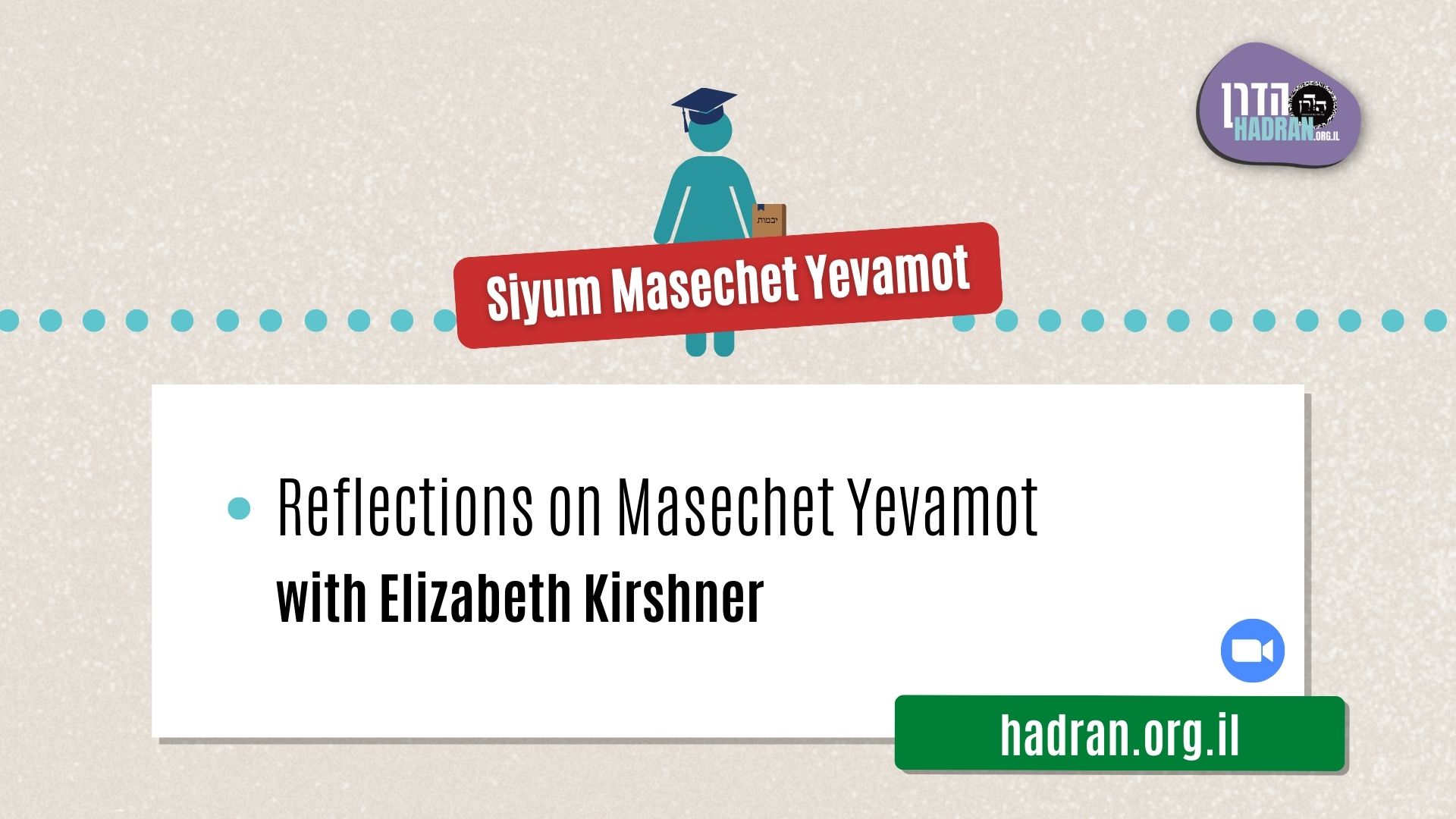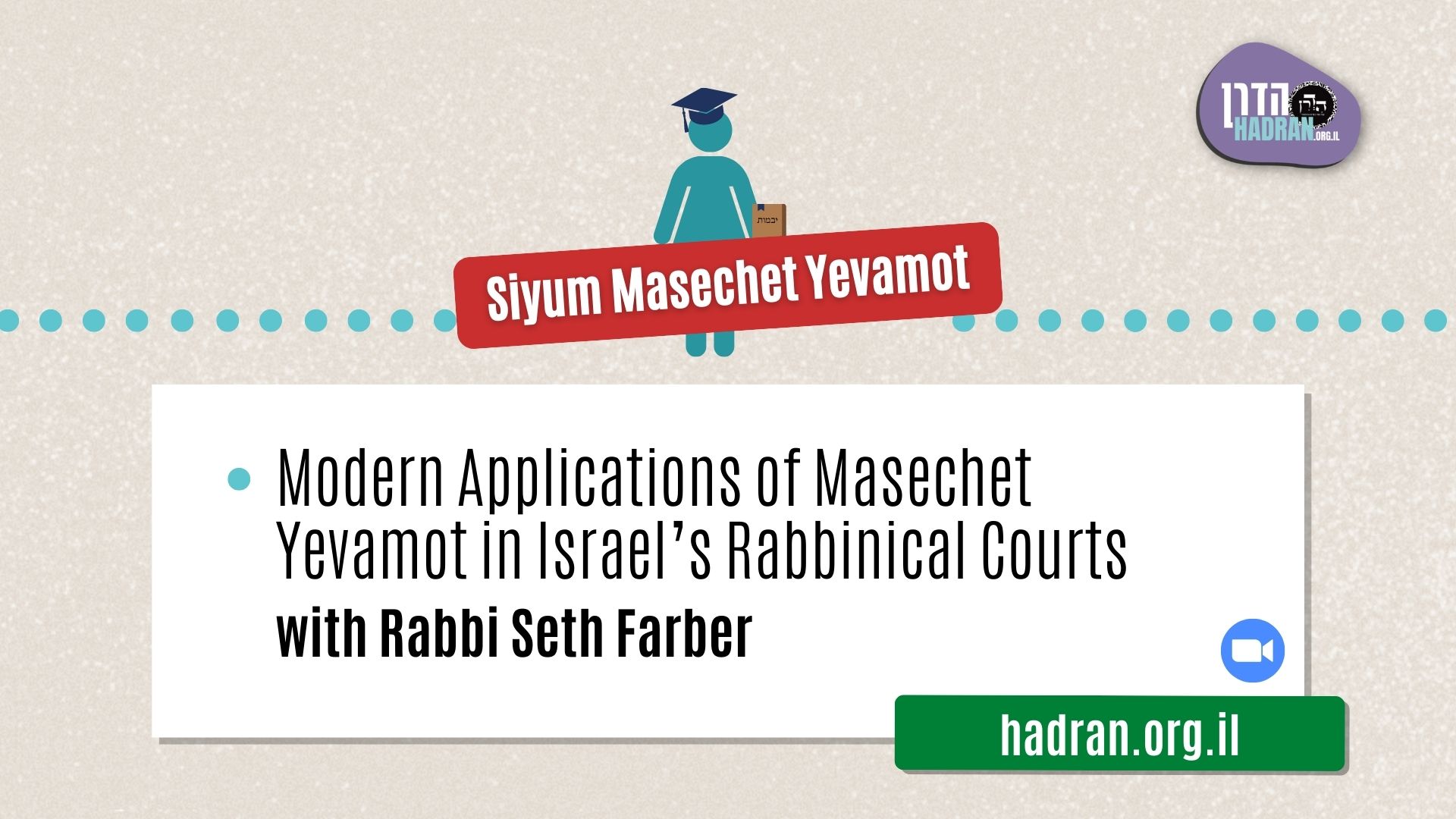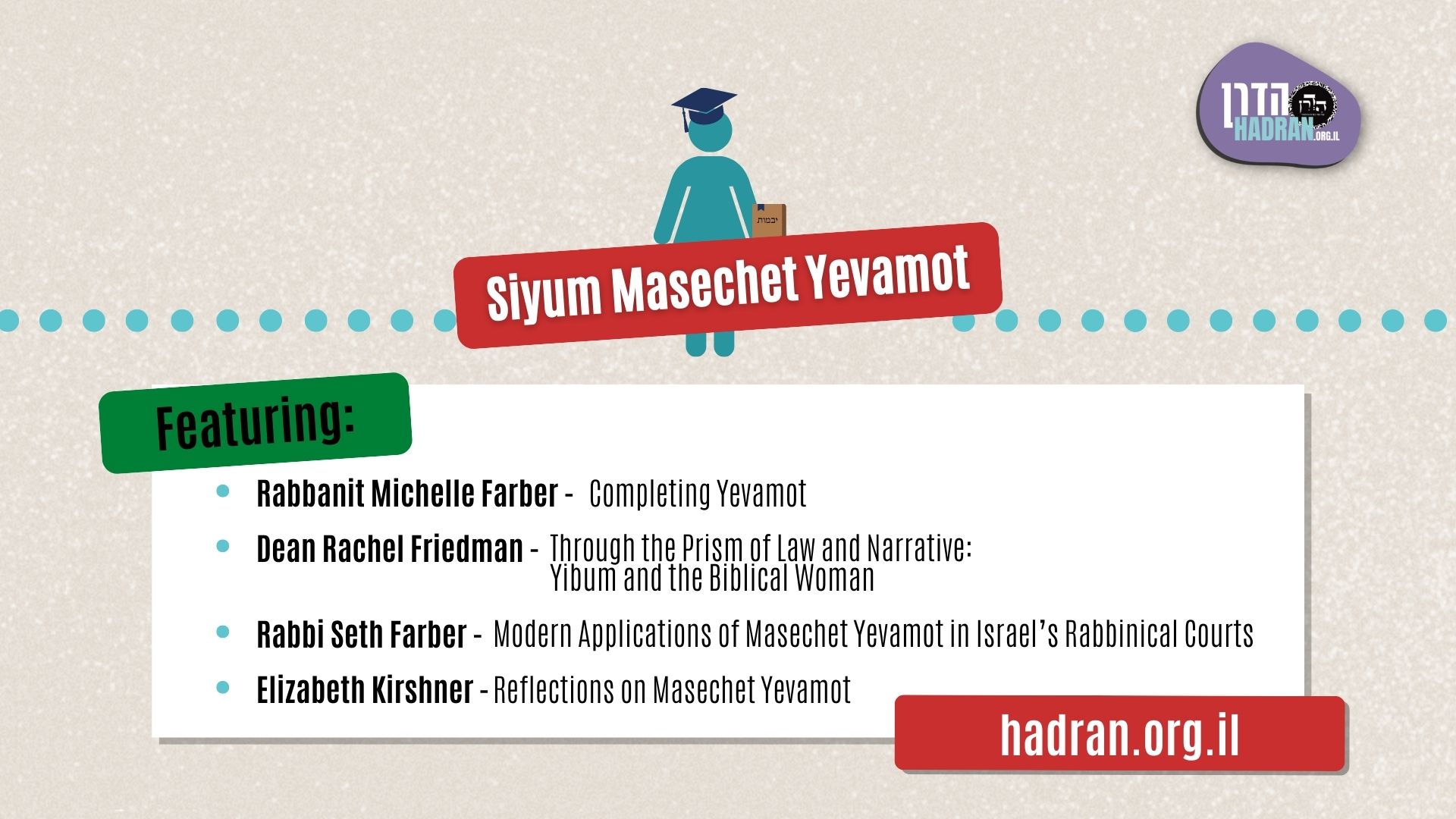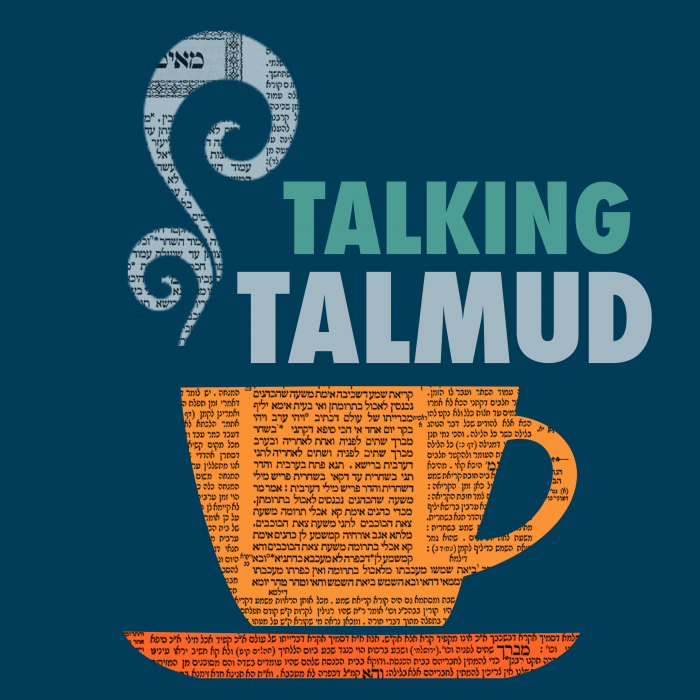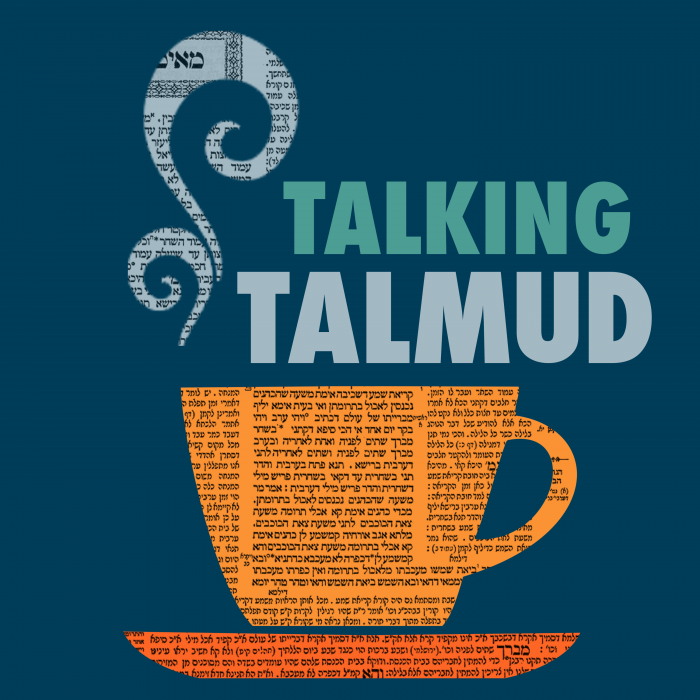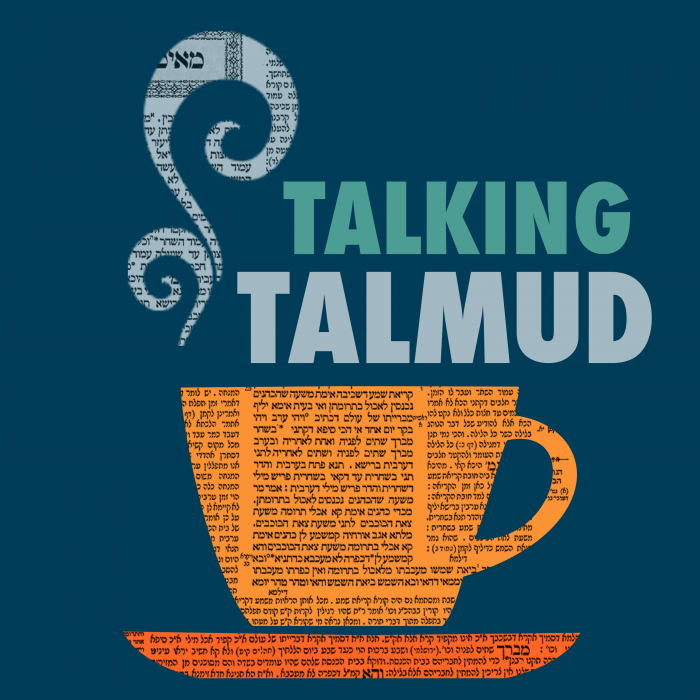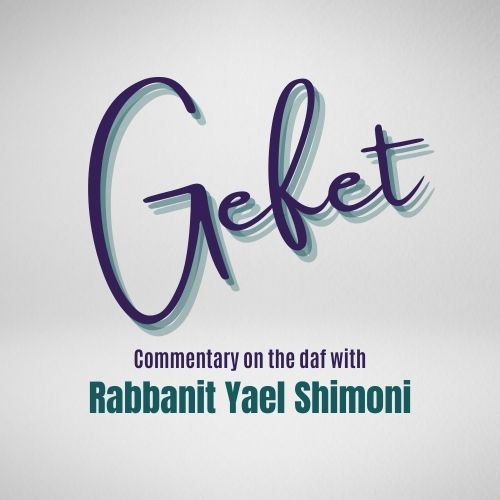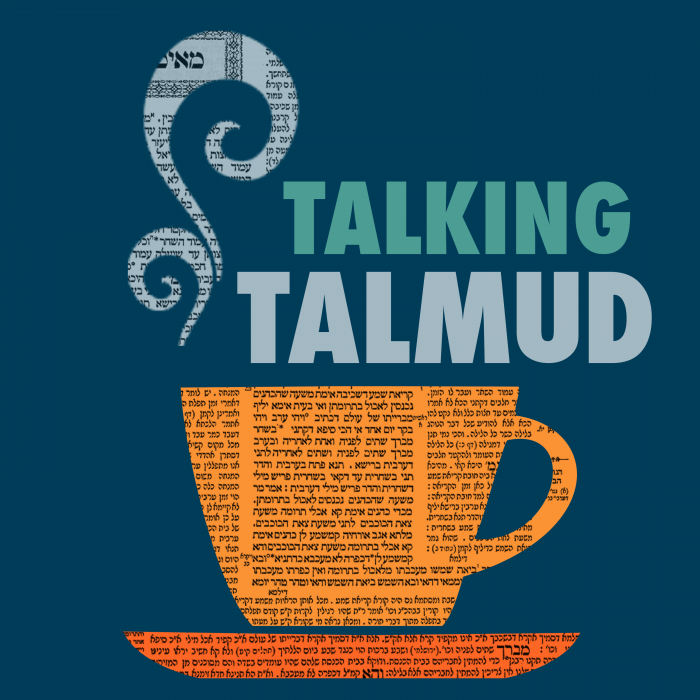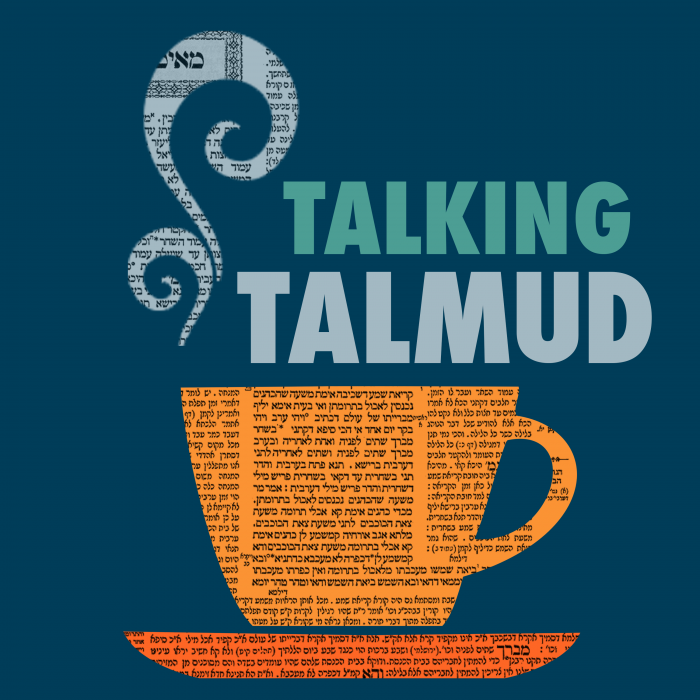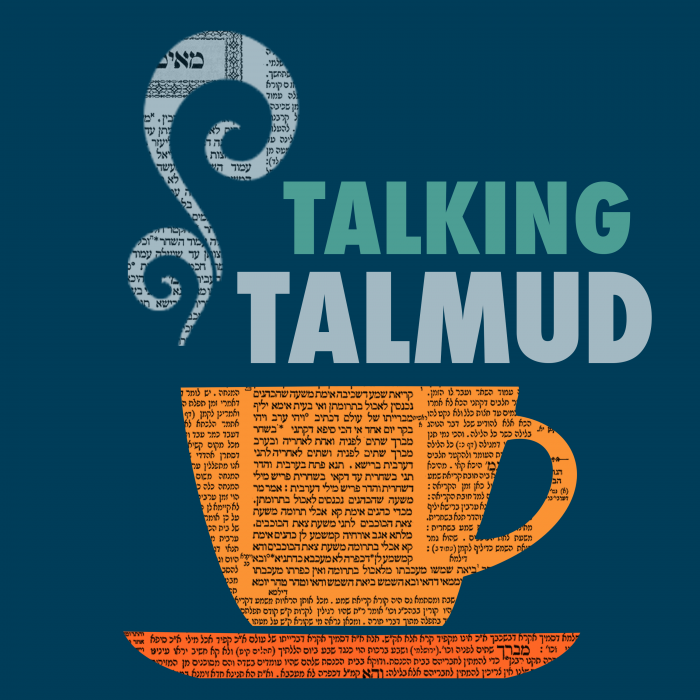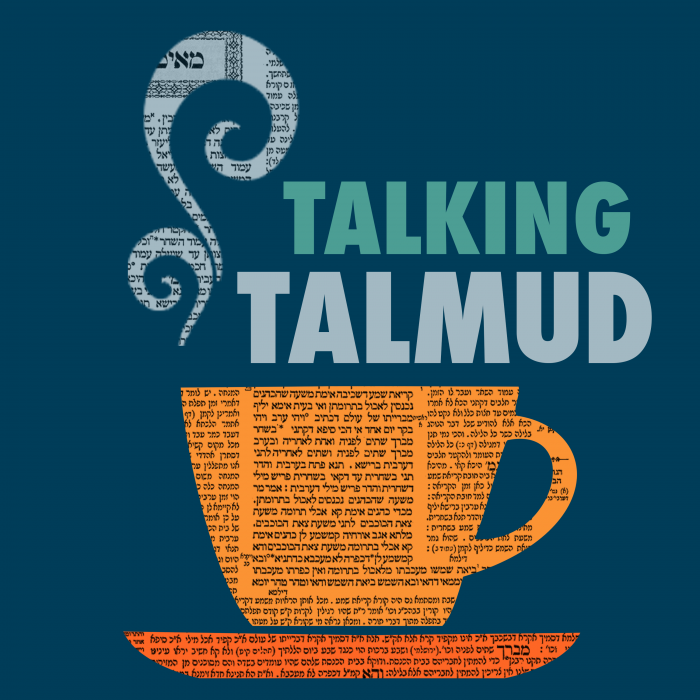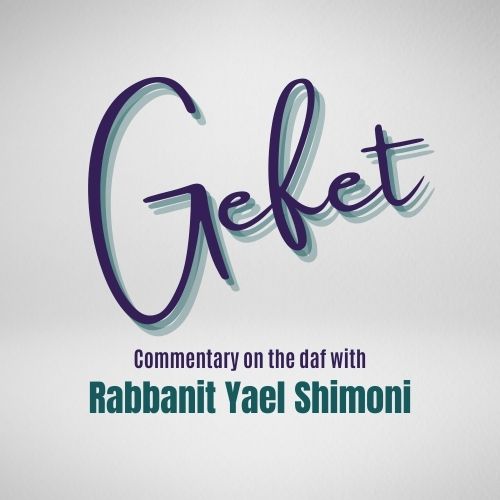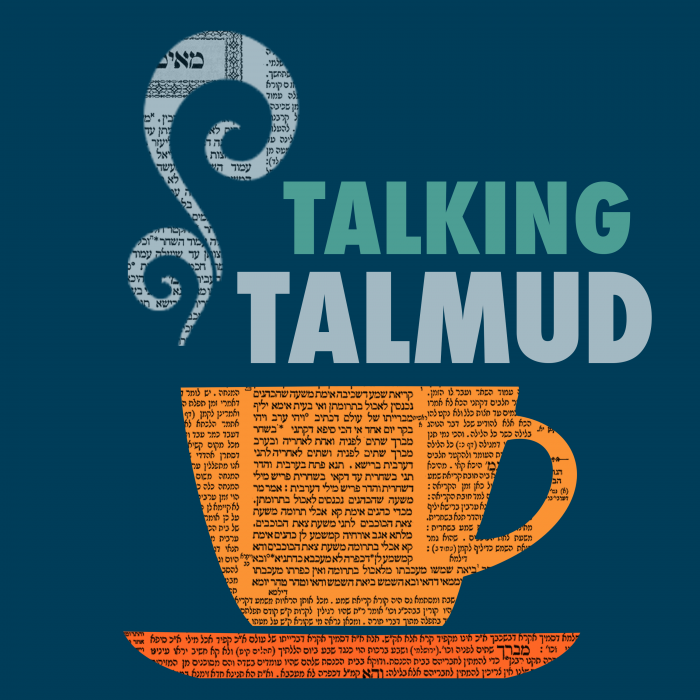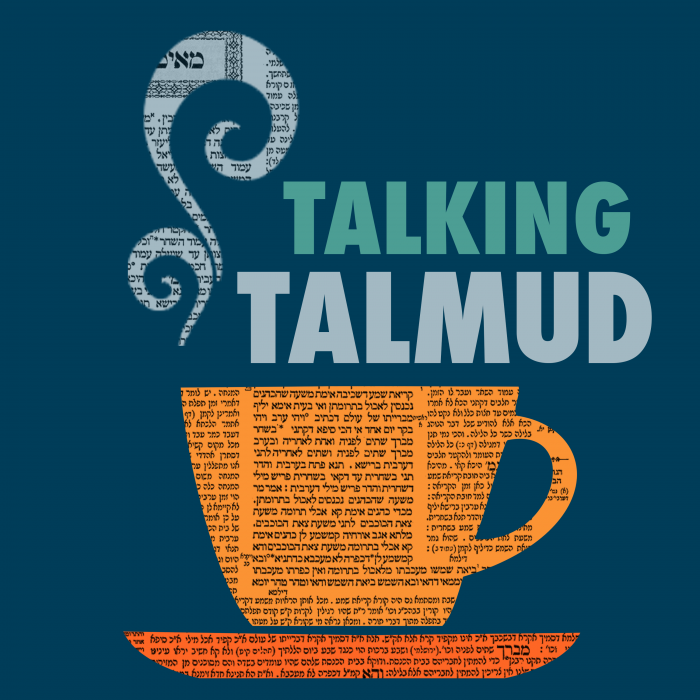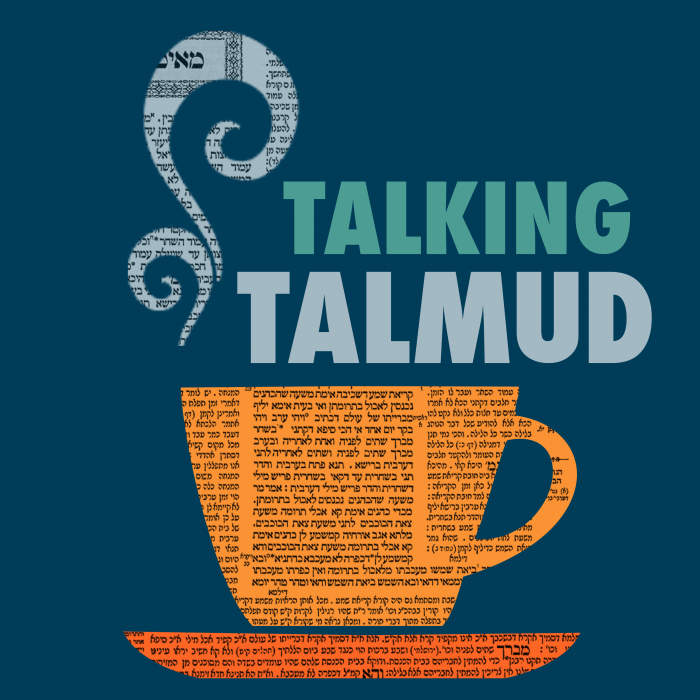Yevamot 40
שֶׁבַּתְּחִלָּה הָיְתָה עָלָיו בִּכְלַל הֶיתֵּר. נֶאֶסְרָה, וְחָזְרָה וְהוּתְּרָה, יָכוֹל תַּחְזוֹר לְהֶיתֵּירָהּ הָרִאשׁוֹן — תַּלְמוּד לוֹמַר: ״מַצּוֹת תֵּאָכֵל בְּמָקוֹם קָדוֹשׁ״ — מִצְוָה.
as initially, before the flour was consecrated, it was among all other foods that are permitted to him, and then when the flour was consecrated as a meal-offering, it became forbidden to him, and then once a handful of the offering was brought on the altar, it reverted from its forbidden status and became permitted to him. One might have thought that it would revert to its original permitted status; therefore, the verse states: “It shall be eaten unleavened in a sacred place” (Leviticus 6:9), which indicates that it is a mitzva to eat it.
בִּשְׁלָמָא לְרָבָא דְּאָמַר הָא מַנִּי רַבָּנַן הִיא — הָכָא, הָכִי קָאָמַר: ״מַצּוֹת תֵּאָכֵל בְּמָקוֹם קָדוֹשׁ״ — מִצְוָה. שֶׁבַּתְּחִלָּה הָיְתָה עָלָיו בִּכְלַל הֶיתֵּר, רָצָה — אוֹכְלָהּ, רָצָה — אֵינוֹ אוֹכְלָהּ (נֶאֶסְרָה, חָזְרָה וְהוּתְּרָה, יָכוֹל תַּחְזוֹר לְהֶיתֵּירָהּ הָרִאשׁוֹן), רָצָה — אוֹכְלָהּ, רָצָה — אֵינוֹ אוֹכְלָהּ.
The Gemara asks: Granted, according to Rava, who said: In accordance with whose opinion is this baraita? It is in accordance with the opinion of the Rabbis; according to him, here, in the first clause, this is what the baraita is saying: “It shall be eaten unleavened in a sacred place” indicates that it is a mitzva for the priest who prepares the offering to eat it himself. As, initially, before the flour was consecrated, it was among all other foods that are permitted to him: If he wishes, he may eat it, and if he wishes, he may choose not to eat it. When the flour was consecrated, it became forbidden to him, and then once a handful was brought on the altar, it reverted from its forbidden status and became permitted to him. One might have thought that it would revert to its original permitted status, so that if he wishes, he may eat it, and if he wishes, he may choose not to eat it.
רָצָה אֵינוֹ אוֹכְלָהּ?! וְהָכְתִיב: ״וְאָכְלוּ אֹתָם אֲשֶׁר כֻּפַּר בָּהֶם״, מְלַמֵּד שֶׁהַכֹּהֲנִים אוֹכְלִים וּבְעָלִים מִתְכַּפְּרִין!
The Gemara interjects that the logic of this last statement seems implausible: Could it be that if he wishes, he may choose not to eat it? But isn’t it written: “And they shall eat those things through which atonement is attained” (Exodus 29:33), which teaches that the priests eat portions of the offering and by their doing so the owners who brought the offering attain atonement? Clearly, then, the eating of the offerings is not volitional.
אֶלָּא: רָצָה — הוּא אוֹכְלָהּ, רָצָה — כֹּהֵן אַחֵר אוֹכְלָהּ, תַּלְמוּד לוֹמַר: ״מַצּוֹת תֵּאָכֵל בְּמָקוֹם קָדוֹשׁ״ — מִצְוָה.
Rather, the baraita should be understood as saying: One might have thought that if he wishes, he may eat it, and if he wishes, another priest may eat it; therefore, the verse states: “It shall be eaten unleavened in a sacred place” (Leviticus 6:9), to teach that it is a mitzva for the priest who prepares the offering to eat it himself. This explanation of the first clause of the baraita is entirely consistent with Rava’s explanation of the latter clause concerning the mitzvot of levirate marriage. In his opinion, both clauses demonstrate that there is a mitzva to perform an action in a case where one might have thought there was none.
אֶלָּא לְרַב יִצְחָק בַּר אַבְדִּימִי, דְּאָמַר אַבָּא שָׁאוּל הִיא, הָכָא מַאי תְּרֵי גַוְונֵי אִיכָּא?
However, according to Rav Yitzḥak bar Avdimi, who said that the baraita is in accordance with the opinion of Abba Shaul and explained the baraita accordingly as teaching the correct manner in which the mitzva is to be performed, here, in the first clause concerning the meal-offering, what two manners of eating are there of which one would be prohibited?
וְכִי תֵּימָא: רָצָה — לְתֵאָבוֹן אוֹכְלָהּ, רָצָה — אֲכִילָה גַּסָּה אוֹכְלָהּ, אֲכִילָה גַּסָּה מִי שְׁמָהּ אֲכִילָה? וְהָאָמַר רֵישׁ לָקִישׁ: הָאוֹכֵל אֲכִילָה גַּסָּה בְּיוֹם הַכִּפּוּרִים פָּטוּר מִ״לֹּא תְעֻנֶּה״!
And if you would say that the baraita might refer to two types of eating and is saying: One might have thought that if he wishes he may eat it with an appetite, and if he wishes he may eat it though an act of excessive eating, forcing himself to eat despite already being fully satiated; perforce this is not correct, as does excessive eating have the legal status of an act of eating? Didn’t Reish Lakish say: One who eats through an act of excessive eating on Yom Kippur is exempt from the punishment of karet indicated in the verse: “For whatever soul it be that shall not be afflicted in that same day shall be cut off from his people” (Leviticus 23:29)? From this it is apparent that excessive eating does not have the legal status of an act of eating.
אֶלָּא: רָצָה — מַצָּה אוֹכְלָהּ, רָצָה — חָמֵץ אוֹכְלָהּ.
The Gemara therefore suggests a different interpretation of the baraita that is consistent with Rav Yitzḥak’s opinion: Rather, say the baraita is referring to two different manners in which the meal-offering was prepared: If he wishes he may eat it unleavened, and if he wishes he may eat it leavened.
וְהָכְתִיב: ״לֹא תֵאָפֶה חָמֵץ חֶלְקָם״, וְאָמַר רֵישׁ לָקִישׁ: וַאֲפִילּוּ חֶלְקָם לֹא תֵאָפֶה חָמֵץ! אֶלָּא: רָצָה — מַצָּה אוֹכְלָהּ, רָצָה — חָלוּט אוֹכְלָהּ.
The Gemara interjects that the logic of this last statement seems implausible: Could it be that if he wishes, the offering could be leavened? But isn’t it written: “Their portion shall not be baked leavened” (Leviticus 6:10), and Reish Lakish said that both the handful brought on the altar and even the priest’s portion shall not be baked leavened? Rather, the baraita should be understood as saying: One might have thought that if he wishes he may eat it unleavened, and if he wishes he may eat it even if it was prepared by being boiled. Therefore, the verse taught that one must eat it unleavened. Understood in this way, this clause of the baraita is also consistent with Rav Yitzḥak’s opinion.
הַאי חָלוּט הֵיכִי דָּמֵי? אִי מַצָּה הִיא — הָא מַצָּה הִיא, וְאִי לָא מַצָּה הִיא — ״מַצּוֹת״ אָמַר רַחֲמָנָא!
The Gemara asks: With regard to this possibility of eating the meal-offering boiled, what are the circumstances, i.e., how is it classified? If it is considered to be unleavened because it is presumed that the flour never managed to rise before it was cooked, then it is unleavened and there is no reason to prohibit its use; and if it is not considered to be unleavened because it is presumed that the flour managed to rise before it was cooked, then it is certainly disqualified from use because the Merciful One states that the offering must be “unleavened” (Leviticus 10:12). How, then, could one ever have questioned whether it is permitted to eat the meal-offering if it was boiled?
לָא, לְעוֹלָם אֵימָא לָךְ מַצָּה הִיא, וּלְהָכִי תְּנָא בֵּיהּ קְרָא — לְעַכֵּב.
The Gemara explains: No; actually, I could say to you that the boiled meal-offering is considered to be unleavened, and nevertheless it is disqualified because it is for this very reason that the verse repeated the requirement that it be unleavened, in order to invalidate a meal-offering that was boiled.
אֶלָּא חָלוּט מַצָּה הִיא דְּקָאָמְרִינַן, לְמַאי הִלְכְתָא? לוֹמַר שֶׁאָדָם יוֹצֵא בָּהּ יְדֵי חוֹבָתוֹ בְּפֶסַח, אַף עַל פִּי דְּחַלְטֵיהּ מֵעִיקָּרָא, כֵּיוָן דַּהֲדַר אַפְיֵיהּ בְּתַנּוּר — ״לֶחֶם עוֹנִי״ קָרֵינָא בֵּיהּ, וְאָדָם יוֹצֵא בָּהּ יְדֵי חוֹבָתוֹ בַּפֶּסַח.
The Gemara asks: But if boiled flour is invalid as a meal offering, then with regard to this statement that we said that boiled flour is unleavened, for what halakha is it relevant? The Gemara answers: It is to say that a person fulfills his obligation with it on Passover. This is because even though he initially boiled it, since he subsequently baked it in an oven, it is called “bread of affliction” (Deuteronomy 16:3), and therefore a person fulfills his obligation with it on Passover.
מַתְנִי׳ הַחוֹלֵץ לִיבִמְתּוֹ — הֲרֵי הוּא כְּאֶחָד מִן הָאַחִין לַנַּחֲלָה. וְאִם יֵשׁ שָׁם אָב — נְכָסִים שֶׁל אָב. הַכּוֹנֵס אֶת יְבִמְתּוֹ — זָכָה בִּנְכָסִים שֶׁל אָחִיו. רַבִּי יְהוּדָה אוֹמֵר: בֵּין כָּךְ וּבֵין כָּךְ, אִם יֵשׁ שָׁם אָב — נְכָסִים שֶׁל אָב.
MISHNA: One who performs ḥalitza with his yevama is like any one of the other brothers with respect to the inheritance of the deceased brother’s estate, i.e., each of the brothers takes an equal share of the inheritance. And if there is a father of the deceased, who is still alive, the property of the deceased belongs to the father. One who consummates levirate marriage with his yevama thereby acquires his deceased brother’s property solely for himself. Rabbi Yehuda says: In either case, whether he consummated the levirate marriage or performed ḥalitza, if there is a father who is still alive, the property belongs to the father.
גְּמָ׳ פְּשִׁיטָא! סָלְקָא דַּעְתָּךְ אָמֵינָא חֲלִיצָה בִּמְקוֹם יִבּוּם קָיְימָא, וְנִשְׁקוֹל כּוּלְּהוּ נִכְסֵי, קָא מַשְׁמַע לַן.
GEMARA: The Gemara asks with regard to the opening clause of the mishna: The fact that one who performs ḥalitza does not gain any special rights to the inheritance of the deceased brother is obvious; why did the mishna teach it? The Gemara answers: It could enter your mind to say that the ḥalitza takes the place of the levirate marriage and therefore the brother who performs ḥalitza should take all the property in the same way as one who consummates the levirate marriage. Therefore, the mishna teaches us that this is not the case.
אִי הָכִי, הֲרֵי הוּא כְּאֶחָד מִן הָאַחִים — אֵינוֹ אֶלָּא כְּאֶחָד מִן הָאַחִים מִיבְּעֵי לֵיהּ!
The Gemara asks: If so, that the mishna’s point is to teach that by performing ḥalitza one is not afforded any additional rights to the inheritance, why is the mishna formulated as: He is like any one of the other brothers, placing the emphasis on what he gains? It should have instead taught: He is still only like one of the other brothers, which would emphasize the mishna’s point that by performing ḥalitza he does not gain any additional rights.
אֶלָּא, סָלְקָא דַּעְתָּךְ אָמֵינָא: הוֹאִיל וְאַפְסְדַהּ מִיִּבּוּם, לִקְנְסֵיהּ, קָא מַשְׁמַע לַן.
Rather, the mishna needs to teach the opening clause in this manner because it could enter your mind to say that since by performing ḥalitza with his yevama he caused her to forfeit the possibility of consummating the levirate marriage, he should be penalized and should forfeit any entitlement to his brother’s property. Therefore the mishna teaches us that this is not so.
אִם יֵשׁ שָׁם אָב. דְּאָמַר מָר: אָב קוֹדֵם לְכׇל יוֹצְאֵי יְרֵכוֹ.
§ The mishna states: If there is a father of the deceased, who is still alive, the property of the deceased belongs to the father. The Gemara explains: As the Master said with regard to the laws of inheritance (Bava Batra 115a): A father of the deceased takes precedence over all the father’s descendants. Therefore, since the father is still alive, the brothers do not inherit at all.
הַכּוֹנֵס אֶת יְבִמְתּוֹ וְכוּ׳. מַאי טַעְמָא — ״יָקוּם עַל שֵׁם אָחִיו״ אָמַר רַחֲמָנָא, וַהֲרֵי קָם.
The mishna states: One who consummates levirate marriage with his yevama thereby acquires his deceased brother’s property. The Gemara asks: What is the reason for this? The Merciful One states in the Torah: “He shall succeed in the name of his dead brother” (Deuteronomy 25:6), and he has succeeded him by marrying his wife; consequently, he succeeds him by acquiring his property as well.
רַבִּי יְהוּדָה אוֹמֵר וְכוּ׳. אָמַר עוּלָּא: הֲלָכָה כְּרַבִּי יְהוּדָה. וְכֵן אָמַר רַבִּי יִצְחָק נַפָּחָא: הֲלָכָה כְּרַבִּי יְהוּדָה.
§ The mishna continues by citing an opposing opinion. Rabbi Yehuda says: In either case, whether he consummated levirate marriage or performed ḥalitza, if there is a father who is still alive, the property belongs to the father. The Gemara cites a ruling on this dispute: Ulla said: The halakha is in accordance with the opinion of Rabbi Yehuda. And similarly, Rabbi Yitzḥak Nappaḥa said: The halakha is in accordance with the opinion of Rabbi Yehuda.
וְאָמַר עוּלָּא, וְאִיתֵּימָא רַבִּי יִצְחָק נַפָּחָא: מַאי טַעְמָא דְּרַבִּי יְהוּדָה, דִּכְתִיב: ״וְהָיָה הַבְּכוֹר אֲשֶׁר תֵּלֵד״ — כִּבְכוֹר, מָה בְּכוֹר אֵין לוֹ בְּחַיֵּי הָאָב — אַף הַאי נָמֵי אֵין לוֹ בְּחַיֵּי הָאָב.
And Ulla said, and some say that it was Rabbi Yitzḥak Nappaḥa who said: What is the reason for the opinion of Rabbi Yehuda? As it is written: “And it shall be that the firstborn that she bears shall succeed in the name of his dead brother” (Deuteronomy 25:6). The term “firstborn” is understood to be a reference to the yavam. By referring to him in this way the Torah indicates that his rights to his brother’s estate are like those of a firstborn child’s rights to his father’s estate: Just as a firstborn has no rights to any of his father’s estate during the lifetime of the father, and he may take his double portion only upon the father’s death, so too, this yavam as well has no rights to any of his brother’s estate during the lifetime of the father.
אִי: מָה בְּכוֹר נוֹטֵל פִּי שְׁנַיִם לְאַחַר מִיתַת הָאָב, אַף הַאי נוֹטֵל פִּי שְׁנַיִם לְאַחַר מִיתַת הָאָב!
The Gemara asks: If there is truly a comparison between the yavam who consummated the levirate marriage and a firstborn, then one should also say that just as the firstborn takes a double portion of his father’s estate after the death of the father, so too, this yavam should become entitled to take a double portion of the father’s estate after the father’s death, i.e., the portion due to him as a son, and that portion that would have been awarded to his brother. However, this is not the case; if the yavam is not actually the father’s firstborn then he receives only an equal portion of the inheritance together with the other brothers.
מִידֵּי ״יָקוּם עַל שֵׁם אָבִיו״ כְּתִיב? ״יָקוּם עַל שֵׁם אָחִיו״ כְּתִיב, וְלֹא ״עַל שֵׁם אָבִיו״.
The Gemara explains: Is it written in the Torah: He shall succeed in the name of his father? No, it is written: “He shall succeed in the name of his dead brother,” which indicates that he succeeds his brother but not in the name of his father, i.e., the Torah never granted him any special entitlement to his father’s estate, and so he should not receive a double portion of it.
אֵימָא: הֵיכָא דְּלֵיכָּא אָב דְּלִשְׁקוֹל נַחֲלָה — תִּתְקַיֵּים מִצְוַת יִבּוּם, הֵיכָא דְּאִיכָּא אָב [דְּלָא] שָׁקֵיל נַחֲלָה — לֹא תִּתְקַיֵּים מִצְוַת יִבּוּם.
The Gemara asks: Since Rabbi Yehuda holds that the halakha that the yavam inherits from his brother, which is stated in the verses describing levirate marriage, applies only when the father is no longer alive, perhaps the other halakhot in those verses also apply only when the father is no longer alive, and accordingly one should say: When there is no father who is still alive, which means that the yavam takes the inheritance, only then should the mitzva of levirate marriage apply, but when there is a father who is still alive, which means that the yavam does not take the inheritance, in that case the mitzva of levirate marriage should not apply.
מִידֵּי יִבּוּם בְּנַחֲלָה תְּלָה רַחֲמָנָא? יַבּוֹמֵי מְיַבְּמִי, וְאִי אִיכָּא נַחֲלָה — שָׁקֵיל, וְאִי לָא — לָא שָׁקֵיל.
The Gemara rejects the possibility of saying this: Does the Merciful One make the mitzva of levirate marriage dependent upon inheritance? Certainly not; rather, in all cases the yavam should consummate the levirate marriage, and then if there is an inheritance to which he is entitled, he takes it, and if not, he does not take it.
יְתֵיב רַבִּי חֲנִינָא קָרָא קַמֵּיהּ דְּרַבִּי יַנַּאי, וְיָתֵיב וְקָאָמַר: הֲלָכָה כְּרַבִּי יְהוּדָה. אֲמַר לֵיהּ: פּוֹק קְרִי קְרָיָיךְ לְבָרָא, אֵין הֲלָכָה כְּרַבִּי יְהוּדָה.
Rabbi Ḥanina Kara, the Bible expert, was sitting before Rabbi Yannai, and he was sitting and saying: The halakha is in accordance with the opinion of Rabbi Yehuda. Rabbi Yannai said to him: Leave the study hall and recite your verses outside, as you are incorrect in your ruling; in fact, the halakha is not in accordance with the opinion of Rabbi Yehuda.
תָּנֵי תַּנָּא, קַמֵּיהּ דְּרַב נַחְמָן: אֵין הֲלָכָה כְּרַבִּי יְהוּדָה. אֲמַר לֵיהּ: אֶלָּא כְּמַאן, כְּרַבָּנַן? פְּשִׁיטָא, יָחִיד וְרַבִּים הֲלָכָה כְּרַבִּים!
In another incident, a tanna who would recite baraitot in the study hall taught a baraita before Rav Naḥman: The halakha is not in accordance with the opinion of Rabbi Yehuda. Rav Naḥman said to him: But then it follows that in accordance with whose opinion is the halakha? It is the opinion of the Rabbis. The Gemara asks: But this fact is obvious, as in a dispute between one individual Sage and many other Sages, the halakha is always decided in accordance with the opinion of the many.
אֲמַר לֵיהּ: אֶסְמְיַיהּ?! אֲמַר לֵיהּ: לָא. אַתְּ — הֲלָכָה אַתְנְיֻיךְ, וּמִקְשָׁא הוּא דְּאִקְּשִׁי לָךְ, וַאֲפַכְתְּ. וּלְמַאי דַּאֲפַכְתְּ, שַׁפִּיר אֲפַכְתְּ.
The tanna said to him: Are you saying that this statement in the baraita is unnecessary and so I should remove that ruling from the baraita when I recite it in the future? Rav Naḥman said to him: No, do not remove it, as although the statement is unnecessary, it is correct. Rav Naḥman explained further: It must be that originally the baraita that you were taught stated: The halakha is in accordance with the opinion of Rabbi Yehuda, and that ruling was difficult for you because you knew that the halakha is always decided in accordance with many, and so you reversed the statement of the baraita to say, as you presently recited it, that the halakha is not in accordance with the opinion of Rabbi Yehuda. And with regard to the manner in which you reversed it, you reversed it well, and therefore you should leave it in its current form.
מַתְנִי׳ הַחוֹלֵץ לִיבִמְתּוֹ — הוּא אָסוּר בִּקְרוֹבוֹתֶיהָ, וְהִיא אֲסוּרָה בִּקְרוֹבָיו.
MISHNA: In the case of one who performs ḥalitza with his yevama, by rabbinic decree it is as though she had been married to him and then he divorced her. Consequently, he is forbidden to engage in relations with her relatives and she is forbidden to engage in relations with his relatives.
הוּא אָסוּר בְּאִמָּהּ, וּבְאֵם אִמָּהּ, וּבְאֵם אָבִיהָ, וּבְבִתָּהּ, וּבְבַת בִּתָּהּ, וּבְבַת בְּנָהּ, וּבַאֲחוֹתָהּ בִּזְמַן שֶׁהִיא קַיֶּימֶת. וְהָאַחִין מוּתָּרִין.
Accordingly, he is forbidden to engage in relations with her mother, and with her mother’s mother, and with her father’s mother, and with her daughter, and with her daughter’s daughter, and with her son’s daughter, and with her sister while his yevama is still alive. However, the other brothers who did not perform ḥalitza are permitted to her relatives.
וְהִיא אֲסוּרָה בְּאָבִיו, וּבַאֲבִי אָבִיו, וּבִבְנוֹ, וּבְבֶן בְּנוֹ, בְּאָחִיו, וּבְבֶן אָחִיו.
And she is forbidden to engage in relations with his father, and with his father’s father, and with his son, and with his son’s son, and with his brother, and with his brother’s son.
מוּתָּר אָדָם בִּקְרוֹבַת צָרַת חֲלוּצָתוֹ. וְאָסוּר בְּצָרַת קְרוֹבַת חֲלוּצָתוֹ.
The mishna states an additional principle: A man is permitted to engage in relations with a relative of a rival wife of his ḥalutza, i.e., his yevama with whom he performed ḥalitza. Since he did not perform ḥalitza with her, she is not regarded as though she had actually been married to him. However, he is forbidden to engage in relations with a rival wife of a relative of his ḥalutza, i.e., in addition to being forbidden to the relatives of his ḥalutza, he is also forbidden to their rival wives.
גְּמָ׳ אִיבַּעְיָא לְהוּ: גָּזְרוּ שְׁנִיּוֹת בַּחֲלוּצָה, אוֹ לֹא?
GEMARA: A dilemma was raised before the Sages: In addition to the Torah prohibition against engaging in relations with one’s wife’s close relatives, the Sages decreed that it is also prohibited to engage in relations with one’s wife’s secondary relatives, i.e., those who are less closely related and so are permitted by Torah law. Since the Sages decreed that a ḥalutza is to be regarded as though she had actually been married to the one who performed ḥalitza, such that her close relatives are forbidden to him, did they also decree that the prohibition of secondary forbidden relationships should also apply in the case of a ḥalutza, or not?
בְּעֶרְוָה דְּאוֹרָיְיתָא — גְּזַרוּ בְּהוּ רַבָּנַן שְׁנִיּוֹת, בַּחֲלוּצָה — לָא גְּזַרוּ רַבָּנַן שְׁנִיּוֹת, אוֹ דִלְמָא לָא שְׁנָא.
The Gemara presents the sides of the dilemma: Did the Sages decree that the prohibition of secondary forbidden relationships applies only in a case where there is a relative with whom relations are forbidden by Torah law, but in the case of a ḥalutza, whose relatives are forbidden only by rabbinic decree, they did not decree that there should be a prohibition of secondary forbidden relationships? Or perhaps the case of a ḥalutza is no different, and since the basis of the rabbinic prohibition applying to her relatives is that it is considered as though she had actually been married to her yavam, the prohibition should extend to her secondary relatives as well?
תָּא שְׁמַע: הוּא אָסוּר בְּאִמָּהּ וּבְאֵם אִמָּהּ, וְאִילּוּ ״אֵם אֵם אִמָּהּ״ — לָא קָתָנֵי!
The Gemara suggests: Come and hear a proof from the mishna: A yavam is prohibited from engaging in relations with the mother of his ḥalutza and with her mother’s mother. However, the mishna does not teach that it is prohibited to engage in relations with her mother’s mother’s mother, which is one of the secondary relationships. This would suggest that the prohibition of secondary relationships does not apply in this case.
דִּלְמָא הַיְינוּ טַעְמָא דְּלָא תָּנֵי, מִשּׁוּם דְּקָבָעֵי לְמִיתְנֵי סֵיפָא ״וְהָאַחִין מוּתָּרִין״, וְאִי תָּנָא ״אֵם אֵם אִמָּהּ״, הֲוָה אָמֵינָא: הָאַחִין מוּתָּרִין דַּוְקָא בְּאֵם אֵם אִמָּהּ, אֲבָל בְּאֵם אִמָּהּ וּבְאִמָּהּ — לֹא.
The Gemara rejects the proof: Perhaps this is the reason that the mishna does not teach that case, because it needs to teach in the latter clause: However, the other brothers who did not perform ḥalitza are permitted to her relatives. And if it had taught the prohibition of her mother’s mother’s mother in the first clause, I would mistakenly say that the brothers are permitted specifically to her mother’s mother’s mother, but not to her mother’s mother. Therefore, no proof can be adduced from that case of the mishna.
וְלִיתְנֵי ״אֵם אֵם אִמָּהּ״, וְלִיתְנֵי ״הָאַחִין מוּתָּרִין בְּכוּלָּן״! קַשְׁיָא.
The Gemara objects: But if he is forbidden to the great-grandmother, then let it teach: Her mother’s mother’s mother in the first clause, and then let it teach: The brothers are permitted to all of them, in the latter clause. This would avoid the concern stated above. The fact that the mishna did not do so would suggest that he is not forbidden to the great-grandmother, or any other secondary relatives. The Gemara concludes: Indeed, this is difficult, but still inconclusive.
תָּא שְׁמַע: הִיא אֲסוּרָה בְּאָבִיו וּבַאֲבִי אָבִיו. קָתָנֵי מִיהָא אֲבִי אָבִיו, מַאי לָאו, מִשּׁוּם חוֹלֵץ דְּהָוְיָא לַהּ כַּלַּת בְּנוֹ!
The Gemara suggests: Come and hear another proof from the mishna: She is prohibited from engaging in relations with his father, and with his father’s father. The Gemara explains the proof: In any case, the mishna teaches that she is forbidden to his father’s father. What, is it not that she is forbidden to him due to the rabbinic decree that it is considered as though she had actually been married to the one who performed ḥalitza with her, and therefore she is forbidden to the grandfather because she is considered to be the grandfather’s son’s daughter-in-law, i.e., the wife of one of the grandfather’s grandsons, which is a secondary relationship? If so, the mishna explicitly demonstrates that the prohibition of secondary relationships also applies in the case of a ḥalutza.
לָא, מִשּׁוּם מִיתָנָא, דְּהָוְיָא לַהּ כַּלַּת בְּנוֹ.
The Gemara rejects the proof: No, she is forbidden to his grandfather due to her previous marriage with the deceased, whose relatives are forbidden to her by Torah law, and it is due to that relationship that she is considered the grandfather’s son’s daughter-in-law. Therefore, no proof can be adduced from that case of the mishna.
תָּא שְׁמַע: וּבְבֶן בְּנוֹ. מַאי לָאו, מִשּׁוּם חוֹלֵץ, דְּהָוְיָא לַהּ (מִשּׁוּם) אֵשֶׁת אֲבִי אָבִיו!
The Gemara suggests: Come and hear another proof from the mishna: And she is prohibited from engaging in relations with his son’s son. The Gemara explains the proof: What, is it not that she is forbidden to him due to the rabbinic decree that it is considered as though she had actually been married to the one who performed ḥalitza with her, and she is therefore forbidden to his grandson because she is considered to be the wife of that grandson’s father’s father, which is a secondary relationship? If so, the mishna explicitly demonstrates that the prohibition of secondary relationships also applies in the case of a ḥalutza.
לָא, מִשּׁוּם מִיתָנָא, וְהָוְיָא לַהּ אֵשֶׁת אֲחִי אֲבִי אָבִיו.
The Gemara rejects the proof: No, she is forbidden to his grandson due to her previous marriage with the deceased, whose relatives are forbidden to her by Torah law, and it is due to that relationship that she is considered to be the wife of a brother of that grandson’s father’s father, which is also a forbidden secondary relationship. Therefore, no proof can be adduced from that case of the mishna.
הָא אַמֵּימָר מַכְשַׁר בְּאֵשֶׁת אֲחִי אֲבִי אָבִיו!
The Gemara asks: But Ameimar rules permissible the marriage of a man to the wife of a brother of that man’s father’s father. Accordingly, the prohibition in the mishna cannot be due to that relationship.
אַמֵּימָר מוֹקֵי לַהּ בְּבַר בְּרָא דְּסָבָא.
The Gemara explains: Ameimar would establish the mishna’s case of: His son’s son, as referring to engaging in relations with a son of a son of the grandfather. The mishna states that she is forbidden to his father, to his father’s father, to his son, and to his son’s son. The Gemara assumed that antecedent of the pronoun: His, in the phrase: To his son and to his son’s son, is the one who performed ḥalitza. As such, the mishna teaches that she is forbidden to the son and grandson of the one who performed ḥalitza with her, which are secondary relationships. Ameimar, however, would claim the antecedent of this pronoun is the father’s father, which immediately precedes it in the mishna. As such, the mishna is teaching that she is forbidden to the grandfather of the one who performed ḥalitza with her, to that grandfather’s sons, i.e., the brothers of the deceased, and to the grandfather’s sons’ sons, i.e., the nephews of the deceased. The yevama is forbidden to these relatives by Torah law. Therefore, no proof can be derived from that case of the mishna.
אִי הָכִי, הַיְינוּ אָחִיו וּבֶן אָחִיו? תְּנָא אָחִיו מִן הָאָב, וְקָתָנֵי אָחִיו מִן הָאֵם.
The Gemara challenges this understanding of: His son and his son’s son: But if so, these relatives are none other than his brother and the son of his brother, who are already explicitly mentioned in the mishna. The Gemara explains: This is not a case of unnecessary repetition because the mishna first teaches that she is forbidden to his paternal half brother and then teaches that she is forbidden to his maternal half brother as well.
תָּא שְׁמַע, דְּתָנֵי רַבִּי חִיָּיא: אַרְבַּע מִדִּבְרֵי תוֹרָה, וְאַרְבַּע מִדִּבְרֵי סוֹפְרִים: אָב וּבְנוֹ, אָחִיו, וּבֶן אָחִיו — מִדִּבְרֵי תוֹרָה. אֲבִי אָבִיו, וַאֲבִי אִמּוֹ, בֶּן בְּנוֹ, וּבֶן בִּתּוֹ — מִדִּבְרֵי סוֹפְרִים
The Gemara suggests: Come and hear a proof from a baraita that Rabbi Ḥiyya taught: Of the relatives who are forbidden to a ḥalutza, four are forbidden by Torah law and four by rabbinic law, as follows: The father of the deceased husband, and his son, his brother, and his brother’s son are forbidden by Torah law; his father’s father, and his mother’s father, his son’s son, and his daughter’s son are forbidden by rabbinic law.
קָתָנֵי מִיהָא אֲבִי אָבִיו. מַאי לָאו, מִשּׁוּם חוֹלֵץ, וְהָוְיָא לַהּ כַּלַּת בְּנוֹ!
In any case, the baraita teaches that she is forbidden to his father’s father. What, is it not that she is forbidden to him due to the rabbinic decree that it is considered as though she had actually been married to the one who performed ḥalitza with her, and therefore she is forbidden to the grandfather because she is considered to be the grandfather’s son’s daughter-in-law, which is a secondary forbidden relationship? This would prove that the prohibition of secondary relationships applies in the case of a ḥalutza.
לָא, מִשּׁוּם מִיתָנָא, דְּהָוְיָא לַהּ כַּלַּת בְּנוֹ.
The Gemara rejects the proof: No, she is forbidden due to her previous marriage with the deceased, whose relatives are forbidden to her by Torah law, and it is due to that relationship that she is considered the grandfather’s son’s daughter-in-law. Therefore, no proof can be adduced from that case of the baraita.
תָּא שְׁמַע: אֲבִי אִמּוֹ. מַאי לָאו, מִשּׁוּם חוֹלֵץ, דְּהָוְיָא לַהּ כַּלַּת בִּתּוֹ!
The Gemara proceeds to consider whether proof may be adduced from each of the other secondary relationships listed in the baraita: Come and hear a proof from that which the baraita teaches: She is forbidden to his mother’s father. The Gemara explains the proof: What, is it not that she is forbidden to him due to the rabbinic decree that it is considered as though she had actually been married to the one who performed ḥalitza with her, and therefore she is forbidden to the grandfather because she is considered to be the grandfather’s daughter’s daughter-in-law, which is a secondary relationship? This would prove that the prohibition of secondary relationships applies in the case of a ḥalutza.
לָא, מִשּׁוּם מִיתָנָא, דְּהָוְיָא לַהּ כַּלַּת בִּתּוֹ.
The Gemara rejects the proof: No, she is forbidden due to her previous marriage with the deceased, whose relatives are forbidden to her by Torah law, and it is due to that relationship that she is considered the grandfather’s daughter’s daughter-in-law. Therefore, no proof can be adduced from that case of the baraita.
תָּא שְׁמַע: וּבֶן בְּנוֹ. מַאי לָאו, מִשּׁוּם חוֹלֵץ, דְּהָוְיָא לַהּ אֵשֶׁת אֲבִי אָבִיו!
Come and hear a proof from that which the baraita teaches: And she is forbidden to his son’s son. The Gemara explains the proof: What, is it not that she is forbidden to him due to the rabbinic decree that it is considered as though she had actually been married to the one who performed ḥalitza with her, and so she is forbidden to his grandson because she is considered to be the wife of that grandson’s father’s father, which is a secondary relationship? If so, the baraita explicitly demonstrates that the prohibition of secondary relationships applies in the case of a ḥalutza.
לָא, מִשּׁוּם מִיתָנָא, וְהָוְיָא לַהּ אֵשֶׁת אֲחִי אֲבִי אָבִיו.
The Gemara rejects the proof: No, she is forbidden to his grandson due to her previous marriage with the deceased, whose relatives are forbidden to her by Torah law, and due to that relationship she is considered to be the wife of a brother of that grandson’s father’s father, which is also a forbidden secondary relationship. Therefore, no proof can be adduced from that case of the baraita.
וְהָא אַמֵּימָר מַכְשִׁיר בְּאֵשֶׁת אֲחִי אֲבִי אָבִיו! אַמֵּימָר מוֹקֵים לַהּ מִשּׁוּם חוֹלֵץ, וְקָסָבַר גָּזְרוּ שְׁנִיּוֹת בַּחֲלוּצָה.
The Gemara asks: But didn’t Ameimar rule permissible the marriage of a man with the wife of a brother of his father’s father? Accordingly, the prohibition in the mishna cannot be due to that relationship. The Gemara concedes: Ameimar would establish the mishna’s case of: His son’s son, as being due to the rabbinic decree that it is considered as though she had actually been married to the one who performed ḥalitza with her, and as such it is evident that he holds that the Sages decreed that the prohibition of secondary forbidden relationships should apply in the case of a ḥalutza.
תָּא שְׁמַע: וּבְבֶן בִּתּוֹ. מַאי לָאו, מִשּׁוּם חוֹלֵץ, דְּהָוְיָא לַהּ אֵשֶׁת אֲבִי אִמּוֹ!
The Gemara continues to seek proof for those who disagree with Ameimar: Come and hear a proof from that which the baraita teaches: And she is forbidden to his daughter’s son. The Gemara explains the proof: What, is it not that she is forbidden to him due to the rabbinic decree that it is considered as though she had actually been married to the one who performed ḥalitza with her, and so she is forbidden to his grandson because she is considered to be the wife of that grandson’s mother’s father, which is a secondary relationship? If so, the baraita explicitly demonstrates that the prohibition of secondary relationships applies in the case of a ḥalutza.
לָא, מִשּׁוּם מִיתָנָא, דְּהָוְיָא לַהּ אֵשֶׁת אֲחִי אֲבִי אִמּוֹ. וְהָא גַּבֵּי שְׁנִיּוֹת דְּעֶרְוָה לֹא גָּזְרוּ!
The Gemara rejects the proof: No, she is forbidden to his grandson due to her previous marriage with the deceased, whose relatives are forbidden to her by Torah law, and due to that relationship she is considered to be the wife of a brother of the grandson’s mother’s father. The Gemara challenges this: But the Sages did not decree that such a person is included among those relatives who are forbidden as secondary forbidden relationships.
אֶלָּא לָאו, מִשּׁוּם חוֹלֵץ, וּשְׁמַע מִינַּהּ גָּזְרוּ שְׁנִיּוֹת בַּחֲלוּצָה? שְׁמַע מִינַּהּ.
Rather, is it not, as the Gemara initially assumed, that she is forbidden to him due to the rabbinic decree that it is considered as though she had actually been married to the one who performed ḥalitza with her, and therefore must one not conclude from this case that the Sages decreed that the prohibition of secondary forbidden relationships should apply in the case of a ḥalutza? The Gemara confirms: One should indeed conclude from it that this is so.
מוּתָּר אָדָם וְכוּ׳. אָמַר רַב טוֹבִי בַּר קִיסְנָא אָמַר שְׁמוּאֵל: הַבָּא עַל צָרַת חֲלוּצָה — הַוָּלָד מַמְזֵר. מַאי טַעְמָא? בְּאִיסּוּרַהּ קָיְימָא.
§ The mishna states: A man is permitted to engage in relations with a relative of a rival wife of his ḥalutza; however, he is prohibited from engaging in relations with a rival wife of a relative of his ḥalutza. The Gemara cites a ruling: Rav Tovi bar Kisna said that Shmuel said: With regard to one who engages in intercourse with a rival wife of his ḥalutza, the offspring of that union is a mamzer. What is the reason for this ruling? It is that she remains in her original prohibition.
Normally, it is prohibited to engage in relations with one’s brother’s wife. However, when there is a mitzva to consummate levirate marriage, that prohibition does not apply, due to the levirate bond between the yavam and yevama. Although following ḥalitza the levirate bond is dissolved, the woman’s status as a ḥalutza means that only the lesser prohibition against marrying a ḥalutza applies to her, and she does not return to her original forbidden status. Shmuel claims that the rival wives of the ḥalutza are not considered to be represented in her act of ḥalitza; consequently, they are not afforded a status similar to that of the ḥalutza herself. Therefore, he assumes that following ḥalitza the rival wives once again become subject to the original prohibition against marrying a brother’s wife. Since that prohibition entails karet, any offspring born from such a union is a mamzer.
אָמַר רַב יוֹסֵף, אַף אֲנַן נָמֵי תְּנֵינָא: מוּתָּר אָדָם בִּקְרוֹבַת צָרַת חֲלוּצָתוֹ. אִי אָמְרַתְּ בִּשְׁלָמָא צָרָה אַבָּרַאי, מִשּׁוּם הָכִי מוּתָּר בַּאֲחוֹתָהּ.
Rav Yosef said: We, too, learned this through an inference from the mishna: A man is permitted to engage in relations with a relative of a rival wife of his ḥalutza. Rav Yosef explains the inference: Granted, if you say that a rival wife is outside, i.e., she is not represented in the ḥalitza of the ḥalutza and so she is not afforded a status similar to that of the ḥalutza herself, then it is due to that reason that he is permitted to engage in relations with her sister and other relatives, because since they are not the relatives of his ḥalutza, there is no reason for them to be forbidden.
אֶלָּא אִי אָמְרַתְּ צָרָה כַּחֲלוּצָה דָּמְיָא, אַמַּאי מוּתָּר?
However, if you say that a rival wife is afforded a status similar to that of the ḥalutza herself, why is he permitted to her relatives? Rather, from the fact that the relatives of the rival wives are permitted, it is apparent that the rival wives are not represented in the ḥalitza. As such, it follows that they should return to their original forbidden status of a brother’s wives, as Shmuel claims.
לֵימָא תֶּיהְוֵי תְּיוּבְתָּא דְּרַבִּי יוֹחָנָן, דְּאָמַר: בֵּין הוּא, בֵּין אַחִין — אֵין חַיָּיבִין לֹא עַל הַחֲלוּצָה כָּרֵת, וְלֹא עַל צָרָתָהּ כָּרֵת.
The Gemara suggests: Shall we say, then, that this mishna is a conclusive refutation of the opinion of Rabbi Yoḥanan? As Rabbi Yoḥanan said: Neither he who performed the ḥalitza nor his brothers are liable to receive karet; they are neither liable to receive karet on account of engaging in relations with the ḥalutza, nor are they liable to receive karet on account of engaging in relations with her rival wife.
אָמַר לָךְ רַבִּי יוֹחָנָן: וְתִסְבְּרַאּ אֲחוֹת חֲלוּצָה דְּאוֹרָיְיתָא? וְהָאָמַר רֵישׁ לָקִישׁ: כָּאן שָׁנָה רַבִּי אָחוֹת גְּרוּשָׁה מִדִּבְרֵי תוֹרָה, אֲחוֹת חֲלוּצָה מִדִּבְרֵי סוֹפְרִים.
The Gemara responds: Rabbi Yoḥanan could have said to you: But how can you understand it that way? Why do you assume that if the rival wives are considered to be represented in the ḥalitza that perforce means that their relatives should be forbidden to the yavam? Is a sister of one’s ḥalutza forbidden by Torah law? Didn’t Reish Lakish say with regard to another mishna (41a): Here, Rabbi Yehuda HaNasi taught: Engaging in relations with a sister of one’s divorcée is forbidden by Torah law, whereas engaging in relations with a sister of one’s ḥalutza is forbidden by rabbinic law. Since the prohibition with regard to the relatives of one’s ḥalutza is rabbinic, it is reasonable to assume that it was applied to only the wife who actually performed ḥalitza and not extended to her rival wives, even if they are considered to be represented in her ḥalitza to the extent that they do not return to their original forbidden status.
מַאי שְׁנָא הַאי, וּמַאי שְׁנָא הַאי?
§ The Gemara questions the distinction indicated by the mishna: What is different about this woman, the relative of a rival wife of one’s ḥalutza, that she is permitted, and what is different about that woman, the rival wife of a relative of one’s ḥalutza, that she is forbidden?



